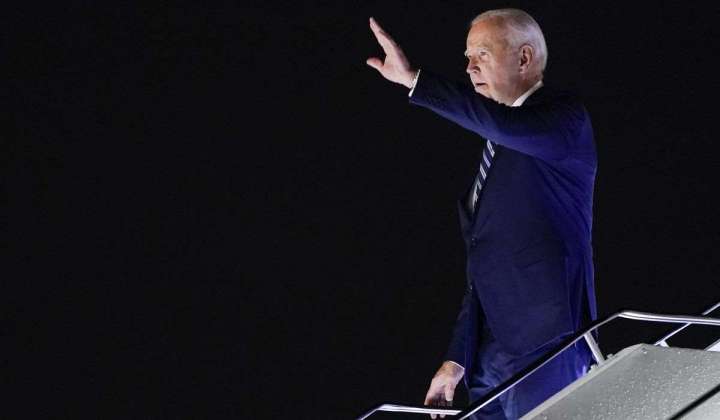Appeals court slams White House for social media censorship but limits injunction

A federal appeals court ruled Friday that the White House and the FBI both likely engaged in unconstitutional campaigns to pressure social media companies to censor content the administration disliked, and the judges ordered them to stop using coercive tactics against the tech companies.
But the judges on the 5th U.S. Circuit Court of Appeals said a lower court’s ruling went too far in silencing the White House and FBI. The appeals court said they are free to make their case to the social media platforms, as long as it doesn’t cross the line into coercion.
The new ruling is a legal victory for the White House, but still amounts to an embarrassing black eye, with the three-judge panel unanimously finding that President Biden’s team was engaged in censorship.
“On multiple occasions, the officials coerced the platforms into direct action via urgent, uncompromising demands to moderate content,” the court concluded. “In doing so, the officials were persistent and angry. And, more importantly, the officials threatened — both expressly and implicitly — to retaliate against inaction.”
The judges said that persuasion is fine, but the government cannot go beyond that.
The White House had argued that its pressure was free speech, protected by the First Amendment.
The judges rejected that.
They highlighted emails from senior White House officials demanding posts be taken down “ASAP,” or “slowing” the reach of other posts. The judges were particularly troubled by one email where a White House official said they were “considering our options” for how to retaliate against the platforms.
Facebook, Google and YouTube “fell in line,” the judges said, working hard to appease the White House and the Surgeon General’s office.
The FBI, too, was guilty of coercion, the court found.
The Centers for Disease Control and Prevention didn’t coerce, but it did “significantly encourage” the platforms to censor content, which is also a violation, the court ruled.
But it disagreed with lower court Judge Terry Doughty’s ruling that Homeland Security’s Cybersecurity and Infrastructure Security Agency, the State Department and the National Institute of Allergy and Infectious Diseases, Dr. Anthony Fauci’s former stomping grounds, crossed lines.
The judges said that while some of those organizations did communicate with the social media platforms, they didn’t coerce.
Judge Doughty had issued a 10-point injunction barring government officials from encouraging or urging social media platforms to censor content, barring the government from asking for reports on how content moderation was being carried out, barring the government from working with several private entities to identify problematic content, and barring the government from “threatening, pressuring or coercing” the companies to suppress content.
The appeals court tossed all but that last part, and even there the judges narrowed the injunction.
It now reads: “Defendants, and their employees and agents, shall take no actions, formal or informal, directly or indirectly, to coerce or significantly encourage social-media companies to remove, delete, suppress, or reduce, including through altering their algorithms, posted social-media content containing protected free speech. That includes, but is not limited to, compelling the platforms to act, such as by intimating that some form of punishment will follow a failure to comply with any request, or supervising, directing, or otherwise meaningfully controlling the social-media companies’ decision-making processes.”
The injunction applies to more than a dozen named White House officials, leading with press secretary Karine Jean-Pierre. The injunction also applies to the CDC and the FBI — particularly Laura Dehmlow, Section Chief of the FBI Foreign Influence Task Force, and Elvis M. Chan, Supervisory Special Agent of Squad CY-1 in the FBI San Francisco Division.
The case was brought by Missouri and Louisiana, as well as several private parties, all of whom said they had speech that was censored thanks to federal government action.






